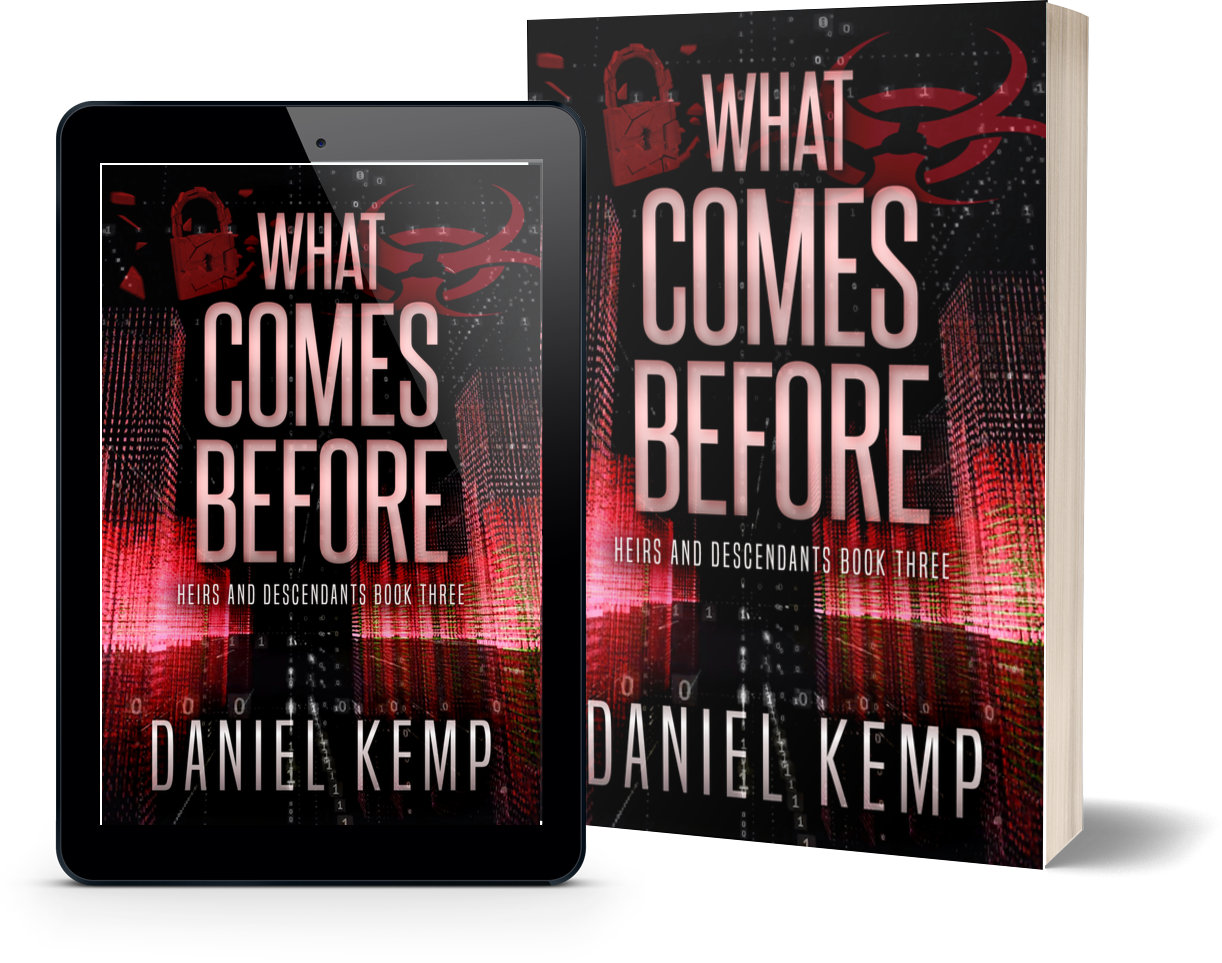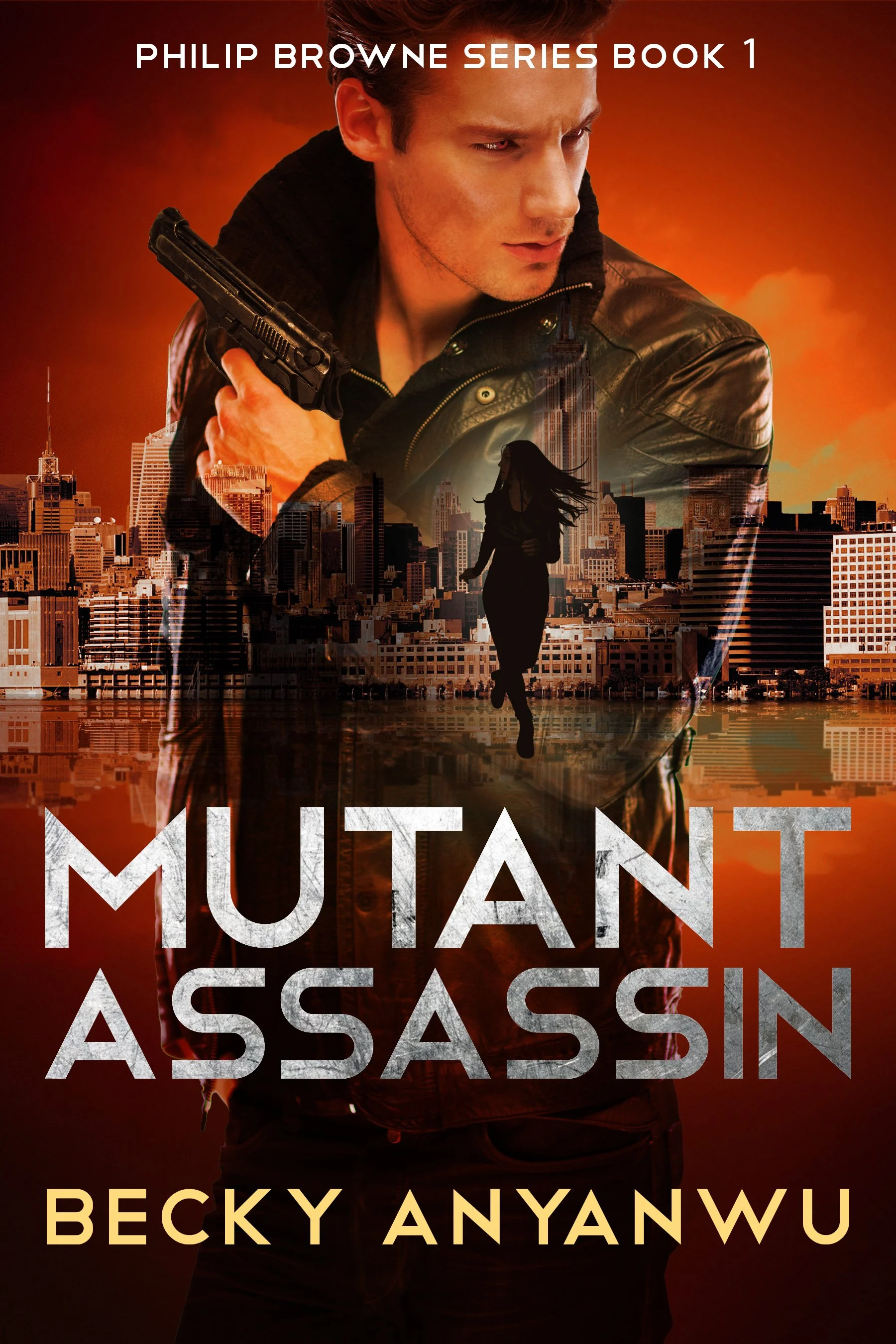What Comes Before (Heirs And Descendants Book 3) - Daniel Kemp
What Comes Before (Heirs And Descendants Book 3) by Daniel Kemp
Book excerpt
The Meeting
Had I not accepted the invitation to Viscount Winston Bottomly’s annual shoot, then the outcome to my immediate life would now be very different; but, having accepted the invitation, I must accept the monu-mental changes it made to my eventual being.
The winter rains and wet spring had left my estate here in York-shire without the quantity of red grouse needed to be able to host a shoot of any notable significance. The absence of quality birds of any number left me, fool that I am, in an unusual condition, frantically seek-ing out a safe haven where I could hang my hat amongst familiar com-pany whilst enjoying the annual shindig of a ‘Glorious Twelve’ shoot.
There you have it, the rest is history. However, I have normally found history to have been written by the victors, of which I’m not sure I can be counted as one. I shall have to leave you to be the judge on that score.
* * *
I arrived during lunch on the Friday having left my London club, where I had stayed overnight, at around nine-thirty that morning. Given the chance, I would have preferred to have remained with the lady I had spent the previous two evenings with, but the expected arrival of her husband sometime during the day had curtailed that bliss. No matter. Boodles, my London club, was an acceptable if celibate alternative.
I have the same marital status as the lady in question, although in my case divorce has recently been mentioned. I have two sons. The youngest, Breno, almost four, was the result of the same number of years of marriage to Serena Abenazo, a Portuguese multi-millionaire fashion designer with her clothes label—Zabreno. My other son is named Luca. He came as the result of a brief, but passionate relationship with a woman who, unbeknown to me until after the event, was, or ra-ther is, my aunt.
Yes, like the rest of my life, it’s a complicated situation, perhaps one having little direct bearing on the proceedings in this story, yet con-tributing nevertheless. Suffice it to say that the mother of my son was the daughter of my great-grandfather’s illegitimate offspring, Paulo To-varisch Korovin, a Russian master espionage operator. Here, I would hasten to explain that my affair with Luca’s mother, Katherine Friedal, took place more than five years before my marriage to Breno’s mother. In the most part of the early years of my marriage I was faithful. My lat-er behaviour took me many miles away from being loyal.
Nowadays, I see Luca infrequently; that’s partially because of Katherine’s father’s death in March of last year and partially through the distance that now separates me from her and our son. They settled into Paulo’s home in Switzerland a month before he died, to help supervise his care and allow Luca to have what Paulo never had with his own fa-ther, Maudlin, my great-grandfather. I visited Paulo as many times as possible, particularly after he moved there from London, but his liking for the fresh, clean air of Switzerland did not suit my disposition as much as his.
We played chess and walked a bit, chatted about times I knew nothing of and drank a few glasses of fine whisky. Notwithstanding all of that, Paulo’s greatest enjoyment was to pay tribute to his grandson’s development—‘Little Luca’s musical education is progressing smooth-ly,’ he would say in his once authoritative voice, progressively becom-ing croakier and weaker more quickly than I had imagined, holding on to the strength he had to award his praise as though nothing else was to be expected from him.
Looking back on his days in his mountains of Switzerland, it was not the fresh air I objected to, it was watching this once great man with-er so quickly away. I had sat beside my own mother’s bed, holding her hand as she cried her tears of regret, before death finally took her from the pain of life she had suffered. I had seen others of my close family die without the need of any further education on the subject of death.
There are more lessons that cannot be taught in any school or place of academic learning; they must be learned under the cold stare of life, and the acceptance of death is one of them. One of those lessons came after seeing every patriarchal figure of my family, my great-grandfather, grandfather and my father, each laid out in the chapel on the Harrogate Estate. I had to reconcile my weakness, in not being able to bring back the buoyancy of the life that surrounded them and me.
The vigour, or buoyancy, I refer to, was what I first felt as lost for-ever when I identified the two members of my family who were mur-dered fairly recently. Having identified the bodies of Elliot, my father, then Edward, my youngest brother, I had to accept what the wickedness of death can do to the living and I lived inside a life where death was ever next to me.
* * *
With his mother’s guidance, and his grandfather’s persistence, Luca gave piano entrance recitals at two musical academies in Switzerland and one in Russia. He played so well that he was accepted in all three, making the choice complicated. After each of the placements was dis-cussed in great detail and given careful examination by his mother and me, it was decided that the Conservatoire de Musique de Genève would be the ideal place for him as well as his mother. I do plan to visit them both soon, it’s just that I haven’t yet found the time, which brings me to probably my second favourite subject of all time: me.
Allow me to introduce myself, then, and like many before, you can form an opinion on what I can tell you and you can imagine. However, do save some prejudice that you may initially have until the end of this tale, when I’m sure you will have more reason for the dislike you have by now formed. I am no good around my number one favourite subject: women. As I’ve openly stated, I’m unfaithful and I expect I always will be until I die. My father was precisely the same even when my mother was on her deathbed, but please don’t think I’m blaming him for my faults, because I’m not. It would seem that adultery is inseparable from the Paterson name.
My name is Harry Paterson. I’m fifty-one, but I feel as young as I ever did. I’m the latest to succeed to the titles of Earl of Harrogate, as well as the newly appointed Sheriff of the County of Yorkshire. I am a Justice of the Peace, serving as a lay magistrate as well as representing a rather large pharmaceutical company that pays me an astronomical amount of money simply to use my name near the top of their letter-heads describing me as an advisor. I’m known as H.P. to my friends, or, to the more confidential acquaintances, namely, in the main, women, as simply H.
Until recently, my life has been spent between Harrogate Hall, sur-rounded by the vast Yorkshire estate I inherited on my father’s death, or the larger Abenazo estate in Portugal, now exclusively owned by my wife, Serena, to which my visits are no longer welcome. My hope is perhaps I may be allowed to go there sometime in the future if all’s well between the two of us. There is the London house still in the Paterson name in Chester Square, around the corner from the once main family residence in Eaton Square, where my old friend George Northcliffe and his wife Sophie now reside.
But what must be counted as my more permanent residence nowa-days would include the homes of a variety of married and single ladies, whose bedrooms are used to a greater extent than any lavish sitting room by this travelling rogue, as it is to them I turn when in need of tender care and comfort.
* * *
The Paterson linage goes back as far 1342 and to Elizabeth of Lancaster, daughter of King Edward III. Her husband had a mistress to whom the Patersons are directly related. So, albeit from the wrong side of the bed, we have royal blood coursing through our blue veins. I am the eldest son of two sisters, with now just the one brother.















Praesent id libero id metus varius consectetur ac eget diam. Nulla felis nunc, consequat laoreet lacus id.